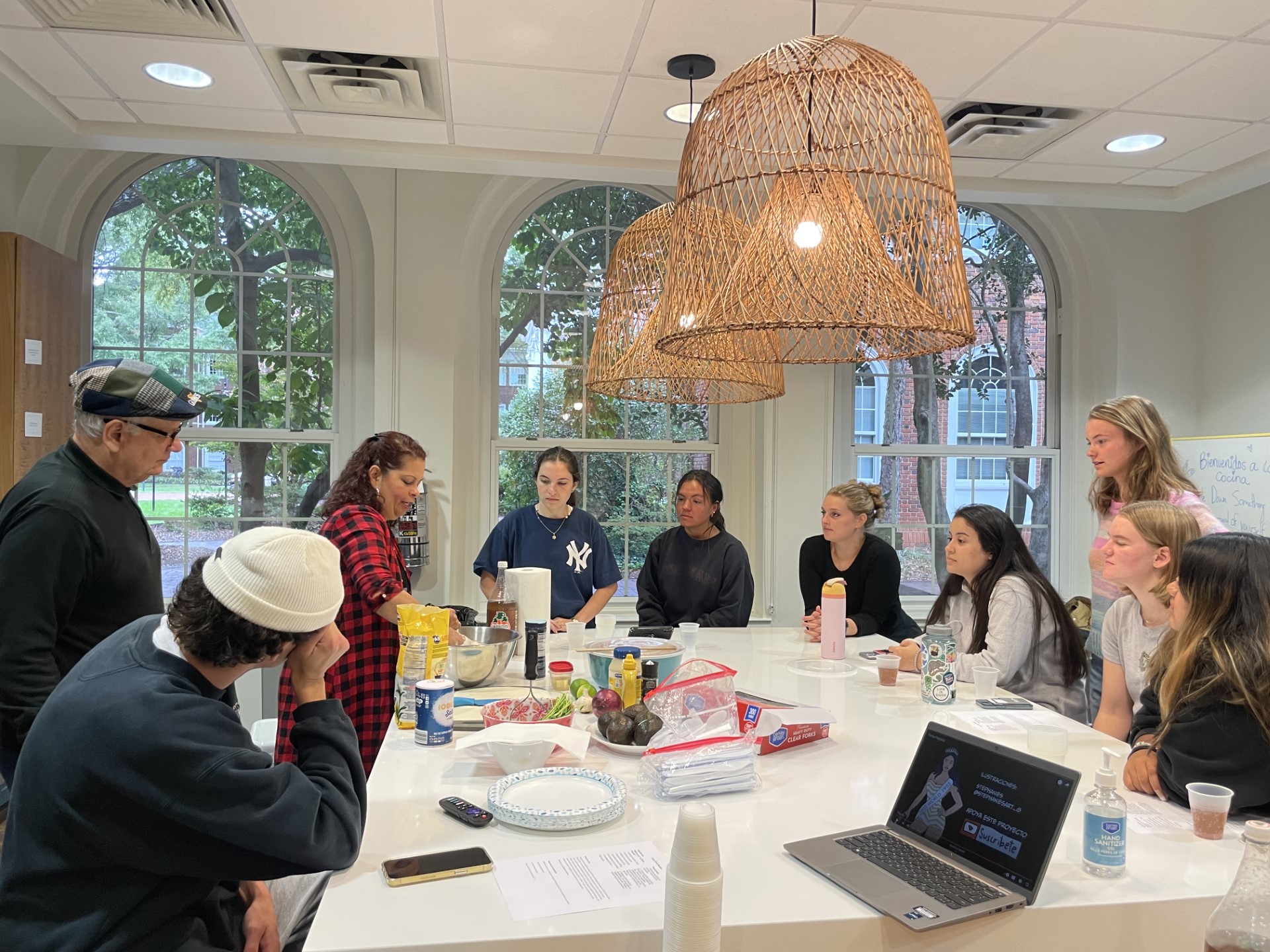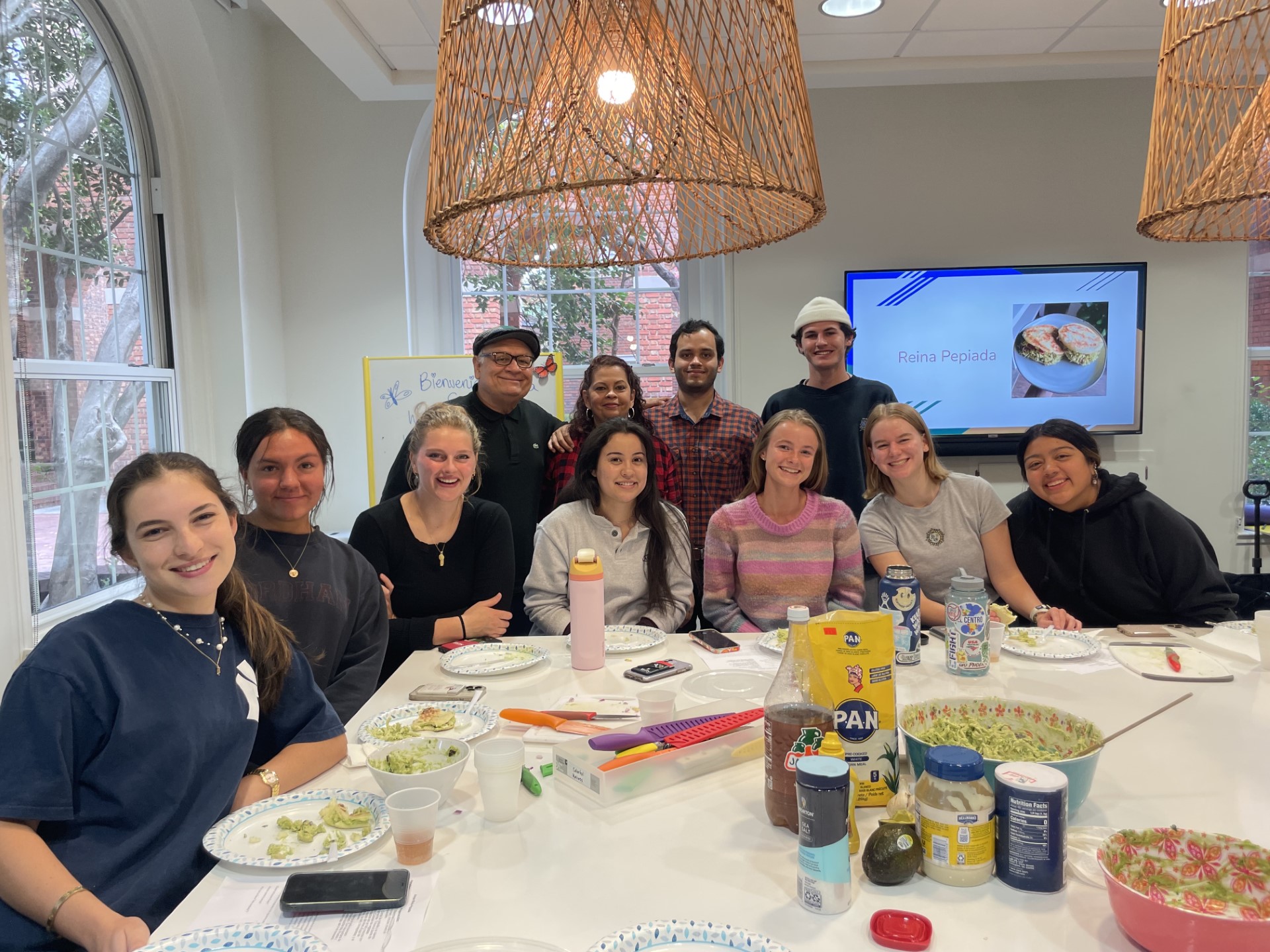Students of SPN 3150 (Exploring Identities in the Spanish Speaking World) learn how to make a Venezuelan dish, the “reina pepiada,” while discussing issues regarding political displacement, exile and immigration.
On Monday, Oct. 16, students in the Exploring Identities in the Spanish-Speaking World course gathered in El Centro’s kitchen in Carlton for their Spanish class.
It was an exciting afternoon as they had three guests, Jesús Garrido, Aida López, and Jesús Leonardo, who would teach them how to cook a popular Venezuelan dish: the reina pepiada. The reina pepiada is an arepa (a cornmeal cake popular in Venezuela, Colombia, and other countries of South America) with a specific filling mainly consisting of chicken, crushed avocado, and mayonnaise. It is said that the name of this arepa was given in honor of Susana Duijm, who was crowned as Miss World in 1955 and became the first Venezuelan and Latin American to win the pageant. Today, the reina pepiada is enjoyed by many around the world, and students of SPN 3150 had the opportunity to learn how to make and enjoy their reina pepiada.

During the class, students engaged in a culinary demonstration completely in Spanish. They prepared the filling, each completing a different task, and formed their arepas. While waiting for the arepas to cook, students sat down for a brief Q&A session with Garrido and López to discuss the current situation in Venezuela, the millions of Venezuelans who had to leave the country, and the complicated immigration processes they experienced.
“We had the opportunity to learn about the immigration process and their lives as Venezuelans, immigrants, and citizens seeking political asylum. The most interesting part though was the medium through which we learned all this. We made Venezuelan arepas in the kitchen. We got to help prepare the food and eat everything like a big family dinner!” said Ava Aanestad, a Spanish minor student.
Gaby Scales ’27 also added, “I had a great time in class today and I am so grateful for the unique opportunity to be able to engage directly with people directly affected by the crisis in Venezuela. I learned about Venezuelan history and complexities and challenges faced by some refugees and immigrants.”
Overall, the class provided students the opportunity to challenge their language skills with native speakers of Spanish, directly engage with Venezuelan culture through a culinary experience and learn about relevant issues of the Spanish-speaking world and the United States.



